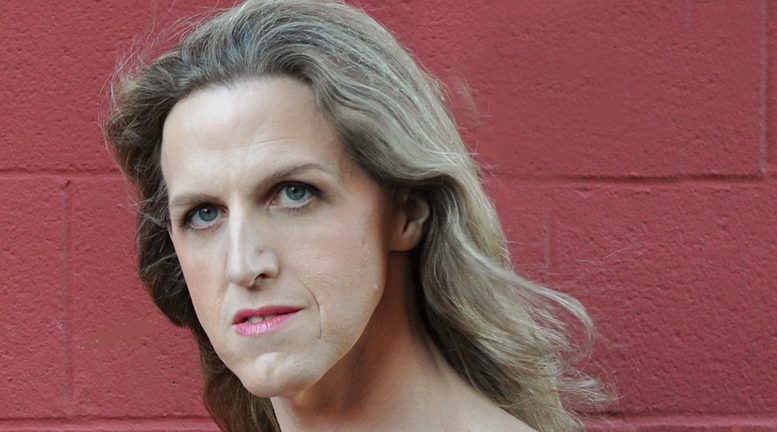What Others Say To Do on Transgender Day of Remembrance
By: Lorelei Erisis*/TRT Columnist—
I’ve written a lot about the Transgender Day of Remembrance (TDoR) over the last decade. And I’ve generally espoused a very hard-line attitude towards preserving the annual observance as a day to promote awareness of the violence that trans people all over the world face every day of our lives—most especially as a call to come together as a community and mourn those trans folks, the large percentage of whom are trans women of color, who have been murdered over the past year.
I have tried to fight against the desire to minimize, or even avoid altogether, the very real horror and deep sadness that accompany the observances for most folks. I have argued that while it’s important to celebrate the positive parts of being trans; it is also important to make space to acknowledge and actively deal with the harder emotions, and real dangers that are still very much a part of our collective experience.
I stand by these arguments. And yet, I would be remiss if I did not admit that I also have come to think there must be space for change and growth in how we observe the Trans Day of Remembrance. I have felt many TDoR observances have begun to groan under the weight of their own traditions and rote-repeated norms.
I believe that for TDoR to stay vital and relevant to our needs as a community, we must make the space to rethink what TDoR is to us, and particularly how it should be observed. It is good to discuss these things. Take a magnifying glass to our assumptions. Preserve what works. Discard or change what doesn’t.
This process itself reflects what I believe to be at the heart of my argument for preserving and honoring the Transgender Day of Remembrance. The very real need to take the time to face the harsh realities that must be dealt with, and do the hard work that needs to be done.
As a columnist and advocate, I have always believed that my primary job is simply to listen—to really listen. I also have to be ready to be wrong. At the very least, I need to be prepared to allow my own ideas and opinions to grow and evolve.
As part of my constant process of actively listening, I have recently become convinced that it may be time to seriously rethink the Transgender Day of Remembrance, or rather, how we actively observe it in our own communities.
As such, I asked my rather broad networks of trans folks and our closest cis allies what they thought the future of TDoR should be? What our observances should look like, both ideally and realistically?
What I received were, by and large, some quite honest and, I thought, fair criticisms of TDoRs in general as well as some more local specifics and a few genuinely excellent and direct suggestions for forward change. However, I think there are seeds with which we may grow the future of TDoR buried in all of these thoughts—there to be sprouted by anyone willing to give them water.
To be clear, I don’t claim to have the answers myself to how TDoR should grow and adapt. I, of course, have some ideas. But, I am also very aware of my own relative privilege as a white trans woman living and working inside several overlapping bubbles of social and economic privilege. And so, in this case, I feel it’s best to let you hear some of these other voices for yourselves. Consider their ideas and, perhaps, let them guide you in your own work to find the future of the Transgender Day of Remembrance for yourself and your own community.
I have removed the identities of these folks and minimally edited for clarity and length some of their comments. I have also removed specific place names. Partly, I have done this to protect the identities of those whose voices you read here; but also because, in my own experience, many of these comments can very well easily apply to a rather wide range of places that hold TDoR observances.
Here are those voices.
- “A lot of these events have felt to me like a candle lighting ceremony followed by a very solemn coffee hour/cocktail party. It’s an extremely painful and uncomfortable experience. While I think there is inherently some pain and discomfort in remembering our dead, there also needs to be more support for our community that is hurting.”
- “I’ve long yearned for a more closely mirrored event that celebrates trans lives—an homage to the ‘give us our roses …’ statement. I know the Trans Day of Visibility in March was started for that purpose, but given the length of time, and variation of visibility/attendance between the events, I feel there should be a closer option. I’d love to see a start to the week or month with a celebration of trans strength and life, which we then close out with honoring those we have lost with TDoR.
- “I really wish that more TDOR events included (acknowledgment of) trans suicide.”
- “What if ***** TDoR instead became an opportunity for us to come together as a trans community and our allies to redistribute wealth towards organizations run by and for those most impacted by anti-trans violence? Organizations like No Justice No Pride, Casa Ruby, and Trans Women of Color Collective for example. Instead of just being yet another opportunity for wealthy white folks to briefly acknowledge the violence inflicted on poor black and brown folks before just moving on with our day.”
- “Something to help trans folks feel more powerful and fierce and protected.”
- “In the past when I brought youth from (a local, heavily working-class and immigrant, urban area) to TDoR in (a generally more middle to upper-middle class, “liberal”-identified college town) it was not a welcoming space. Not only did nobody speak to them I watched folks actively avoid them.”
- “I would love to see anyone from anywhere feel welcome. It’s easy to fall into an us vs. them space when people look or act differently than you, but I wish that all could assume that if people are there they want to be part of what is happening and not treated as outsiders. I think the community has a responsibility to stop talking about intersectionality in theory and start creating actual welcoming spaces, even if it means stepping out of your comfort zone. Not all trans/Queer people are from (areas that identify themselves as trans and queer-friendly), but we all deserve safe and welcoming spaces.”
- “I’ve seen so many folks walk away from TDoR feeling like we only hear our names when we are victims, and we need to hear our names when we’re alive as well. Most especially I want to hear the names of Black trans women who are out here kicking major ass—I want the opportunity to hear them speak and honor their leadership and successes.”
- “I want to see white tears decentered and the lives of those who have been taken centered.”
- “I’d recommend instead doing a fundraiser for one of the many organizations throughout the US run by and for trans people of color. Support trans people of color, especially Black trans women while they’re alive and thriving, don’t just remember them after they’ve passed.”
- “Use it as a platform for speakers. Have those speakers present an intersectional reflection of the trans community, while being aware of our record of skipping over race in our ‘representation’ in the past. Bring up common points that affect us as a nation. And discuss local issues as well, issues such as our town being a trans safe haven, but with a high percentage rate of trans unemployment—especially with most of those numbers being trans-women and trans-femme individuals. Our lack of representation for sex workers, especially since I know our area has a good number, would also be a good point as well. Also, mention black trans women who deal with high homicide rates; and Latin immigrant trans women being jailed and abused/killed in ICE detentions centers. This being both something that has the potential of affecting us locally and has been a huge issue nationally is something else we should seriously cover as well.”
- “TDoR needs more space for community care. This should be part of a larger care collective/mutual aid work that ensures we all have what we need. And definitely it should have care-focused aspects as well as an accessibility team at the event. Maybe a parallel event that people can go to if they are thinking about TDOR on the day of but aren’t up for going to it that day.”
- “I wish we found out more about their lives, (the names on the annual TDoR list) all we ever know is that they were trans and died by suicide and murder. I want to know about their lives too, I feel like they would want that, like any other funeral.”
- “I want to see (TDoR) held in spaces that aren’t all churches. I’ve always wanted to attend but churches make me extremely uncomfortable. But also the church can be a place of hurt and hate for some other folks.”
- “(TDoR observances should be used for…) Raising clothes/ funds/ food for those in the community who need it, with an easy sign-up process.”
- “I ask what is the purpose of a ***** TDoR event? Because my interpretation of past events has been that it is a space for a majority wealthy white cis and trans folks to performatively mourn the lives of poor trans women of color we never knew.”
- “I’d like to see some suicide prevention efforts as part of (TDoR). Some connection building, so those who come not knowing anyone or knowing very few people can get connected to their community; some things to ease the intensity of being in a large group of people for those with social anxiety.”
- “Also: more trauma-informed group processing/catharsis than what feels like it’s centered only on WASPY-style ways of mourning.”
- “I have pretty much given up on TDoRs for many of the reasons listed above. A bunch of reasonably well-heeled trans white folks (including me) getting together to light candles, ring bells, say or listen to comforting words about what victims we are. What’s the point? TDoR should be a day of listening to and supporting the real victims: trans women of color. They’re out there, but we never make them welcome. Until they feel they can come, be welcomed, be heard, be supported by more than just nice words and a few tears; count me out.”
- “Writings such as ‘that could have been me’ or ‘violence against us/our community’ by white folks around TDoR can either build a path for empathy or avoid acknowledging who is actually experiencing the majority of the violence. It shouldn’t matter that it could have been us; it should be that this is evidence of people suffering and so we should care about limiting that harm, but the reality is it does matter to a lot of folks who aren’t yet very politically aware.
- “I think TDoR is an important day that should continue being recognized in *****. But how we run a TDoR here must change, because right now I don’t think it’s working in the way it could be.”
Slàinte Chugat!!!
*Lorelei Erisis is a proud trans woman who loves all of you. (Even you. Yes, YOU!). Send your questions about trans issues, gender, and sexuality to her at askatranswoman@gmail.com.








Thank you for providing so much food for thought, Lorelei.